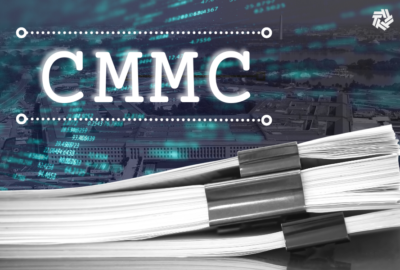Cyber Leaders Exchange 2024: ONCD’s Harry Wingo on lowering barriers to good-paying cyber jobs
The Office of the National Cyber Director wants to fill thousands of open federal jobs under its Service for America initiative.
The White House Office of the National Cyber Director’s Service for America hiring surge isn’t just about filling hundreds of jobs across the federal government.
Of course, ONCD seeks to help agencies meet the pressing need for talent in areas like artificial intelligence, cybersecurity and technology modernization.
But Harry Wingo, deputy national cyber director, said the Service for America effort is also about raising awareness that “these jobs are out there, particularly in the federal government.” And they don’t all require a college degree.
“We are focusing on skills-based hiring,” Wingo said during Federal News Network’s Cyber Leaders Exchange 2024. “So where there may be those who were thinking that it was possible only to go into cyber jobs if you had a four-year degree, we really want to clarify that for many roles, if you have the ability to do the work, we’ll make sure that we lower those barriers and we broaden pathways to opportunity by bringing you in based on skills-based hiring.”
ONCD leads a push to transition nearly 100,000 federal IT and cyber jobs to skills-based hiring by summer 2025. Skills-based hiring is a linchpin of the White House’s National Workforce and Education Strategy.
The idea is to focus more on evaluating candidates’ skills, as opposed to relying purely on educational degrees and self-assessments. The White House expects that by transitioning to skills evaluations and on-the-job training public and private sector organizations can fill nearly 500,000 open jobs.
“The Biden-Harris administration is excited about where we can create opportunities for Americans to have good-paying jobs that also have meaning, and we’re really focusing on skills based hiring for those efforts,” Wingo said.
Federal cyber efforts need ‘cohesion’
ONCD is also looking to bring cohesion to federal cybersecurity efforts under the administration’s overarching National Cybersecurity Strategy, he said.
And one of the pillars of the workforce strategy is strengthening the federal cyber workforce, including through better cross-agency collaboration, enhanced recruiting and retention processes, improved career pathways and investments in human resources capabilities.
“A lot of times, because cyber is so important, a lot of people will ask, ‘Well, how do we hold on to people? What if they leave for jobs in the private sector?’ ” Wingo explained. “And one of the things that we can bring coherence on as well is how to really make sure that your culture is there, to get the meaning part, to give people the ability to contribute, to be flexible, to really bring out that innovation and resilience that folks in the cyber workforce really want to have.”
Regulatory harmonization on cyber demands
Beyond the cyber workforce, ONCD is leading many federal cybersecurity initiatives. Among them is an effort to better streamline a growing patchwork of cyber regulations under a regulatory harmonization initiative.
“We are looking at the opportunities to look at places where the regulatory schemes that impact different sectors within cyberspace, sectors of the economy,” Wingo said. “And even though there may be a difference between, say, what goes on with the telecom networks or energy grids or water or the banking industry, there are commonalities or things that they share — in how you need to prepare people and technology to face the growing and ever-increasing challenges in cyberspace.”
ONCD received 86 responses to a 2023 request for information on cybersecurity regulatory harmonization. According to the latest implementation plan for the national cyber strategy, ONCD is now exploring opportunities to establish regulatory reciprocity pilot programs.
“We want make sure that regulations are not working against each other within different sectors, and then what’s important on coherence is to then make sure reciprocity comes after harmonization — that they work together,” Wingo said.
“If there are certain things that are met with technology refresh or technical debt being addressed in one place that you’re regulated, we want to make sure that you get credit for it from another regulator,” he added. “We’re working really hard to make sure that we identify those opportunities and that we make a change so that we have better coherence within both federal government and with private sector as partners.”
Discover more articles and videos now on Federal News Network’s Cyber Leaders Exchange 2024 event page.
Copyright © 2024 Federal News Network. All rights reserved. This website is not intended for users located within the European Economic Area.
Follow @jdoubledayWFED






